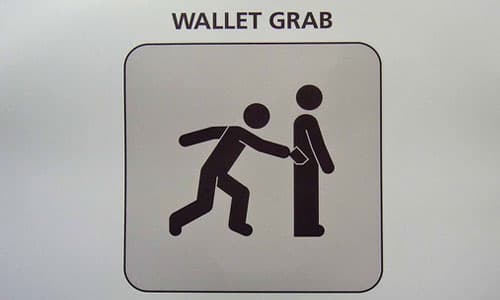- Beware of debt consolidation scams and rip-off debt relief providers.
- Compare companies- avoid any debt relief companies that charge up-front fees.
- Read online reviews, and check the history, track record and licenses of the debt relief firm that you consider.
- Start your FREE debt assessment
Rip-off Consolidation Companies and Reputable Debt Providers: How to Tell the Difference Between Good, Bad and Scams
Unfortunately, not all debt consolidation companies are legitimate. To avoid the rip-off companies, educate yourself on the debt consolidation process and watch out for these four warning signs.
1. Quote Unusually Low Monthly Payments
A debt consolidation company works with creditors to lower your interest rates. Creditors have predetermined rates that they will lower to, so every debt consolidation program will get you the same rates. But since 2004, creditors no longer accept reduced minimum monthly payments.
Companies who quote unusually low monthly payments are probably giving you a low figure, which they will raise once you are in the program. Instead of comparing monthly payments, request information on their fees.
Quick tip
For peace of mind in selecting a debt relief firm, apply with one of the pre-screened Bills.com providers for a free, no-obligation debt relief quote.
2. Demand All Debts Be Included
Companies who demand that all your debts be included in the debt consolidation don't have your best interests in mind. Some loans, such as credit union loans, are ineligible for lower interest rates. And other types of credit, like student loans, may already have a low interest rate.
However, by including all your bills in the monthly payment, the company can charge you a higher fee for handling more accounts. Before you enter a program, decide which accounts you want to consolidate for lower rates.
3. Charge High Up-Front Fees
The most common scam is to charge high up-front fees, up to thousands of dollars, for services. Sometimes companies will promise to refund fees on completion of the program, but few clients actually complete the program.
The Federal Trade Commission recently enacted a rule that prohibits firms that are not non-profit from charging any up-front fees, so if a firm asks you for fees before results are achieved, run away!
For profit companies will charge a competitive fee along with a flat monthly charge, or charge you a percentage of what they save you — but again, they should charge zero up-front.
4. Request Account Numbers First
Be highly suspicious of any debt relief company that requests your account numbers, social security number, or other personal information before providing a quote. By providing this information, you open yourself up to identify theft.
Ask for a free no-obligation quote and hide your personal account numbers from them until you are certain that they are a legitimate provider and not a debt consolidation scam. To receive an accurate quote, you shouldn't need to provide more than your creditors’ names, account balances, and interest rates.
Conclusion: Do Your Homework to Find A Good Debt Consolidation Firm
To avoid debt consolidation scams and to shield yourself from shady debt relief providers be sure to be diligent and do your own homework. If something sounds too good to be true, it just might be a debt scam, so protect yourself and find a reputable provider who can truly provide you relief.
Don't pay any up-front fees and research the firm to make sure that it has been around for several years and is firmly established. You do not want a fly-by-night shady operator making an already stressful debt problem any worse.
Be sure that no matter who you choose, do your own homework on the right solution for your debt consolidation needs and then on the individual firm that you choose. You can start by reading our debt consolidation provider reviews before picking your own solution.
Image Licensed by Sashafatcat
Free up cash each month with Freedom Debt Relief

Ozzy S., Freedom client
“Right away, I had more money each month because of program costs so much less than what I was paying on my minimums.”
Actual client of Freedom Debt Relief. Client’s endorsement is a paid testimonial. Individual results are not typical and will vary.

